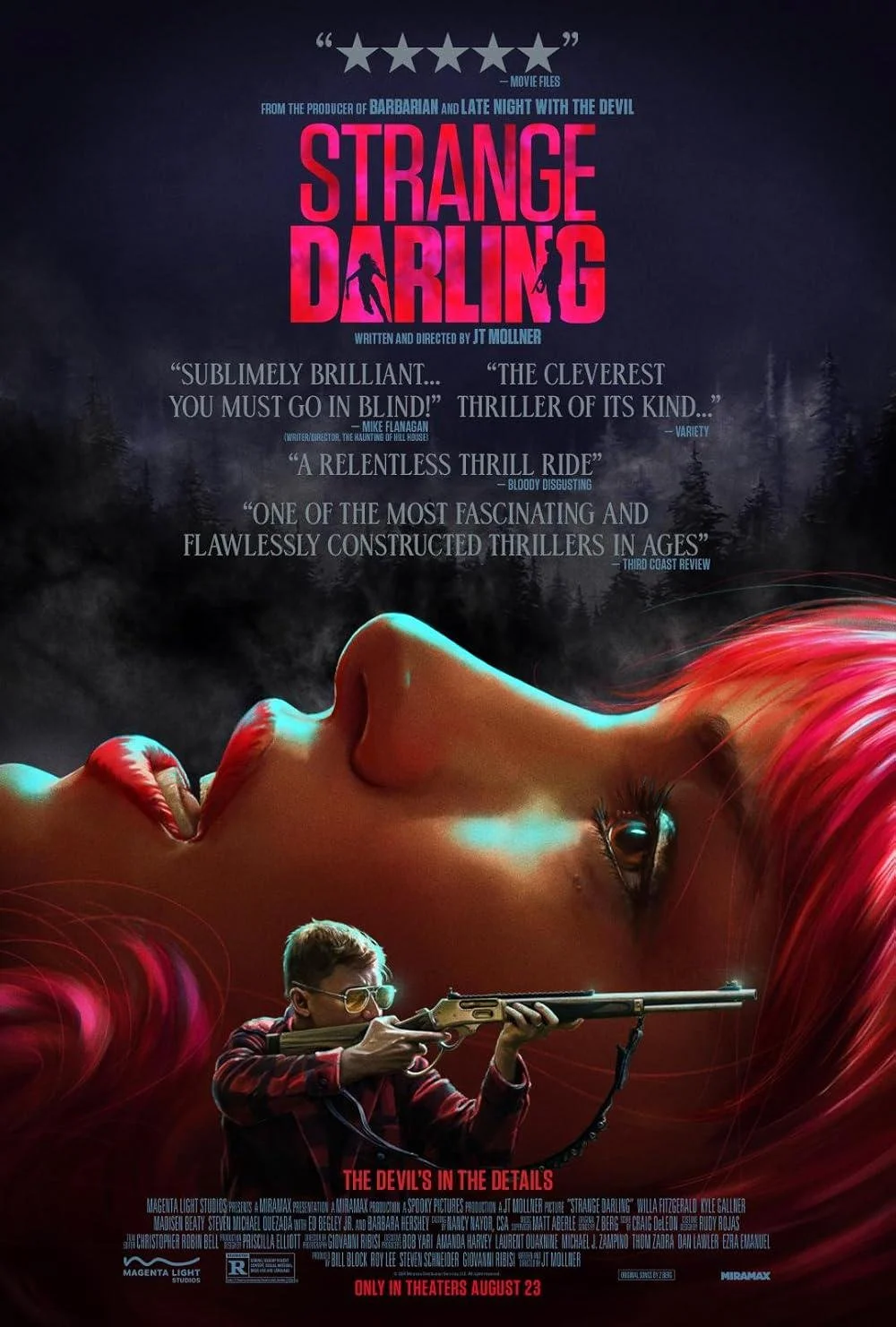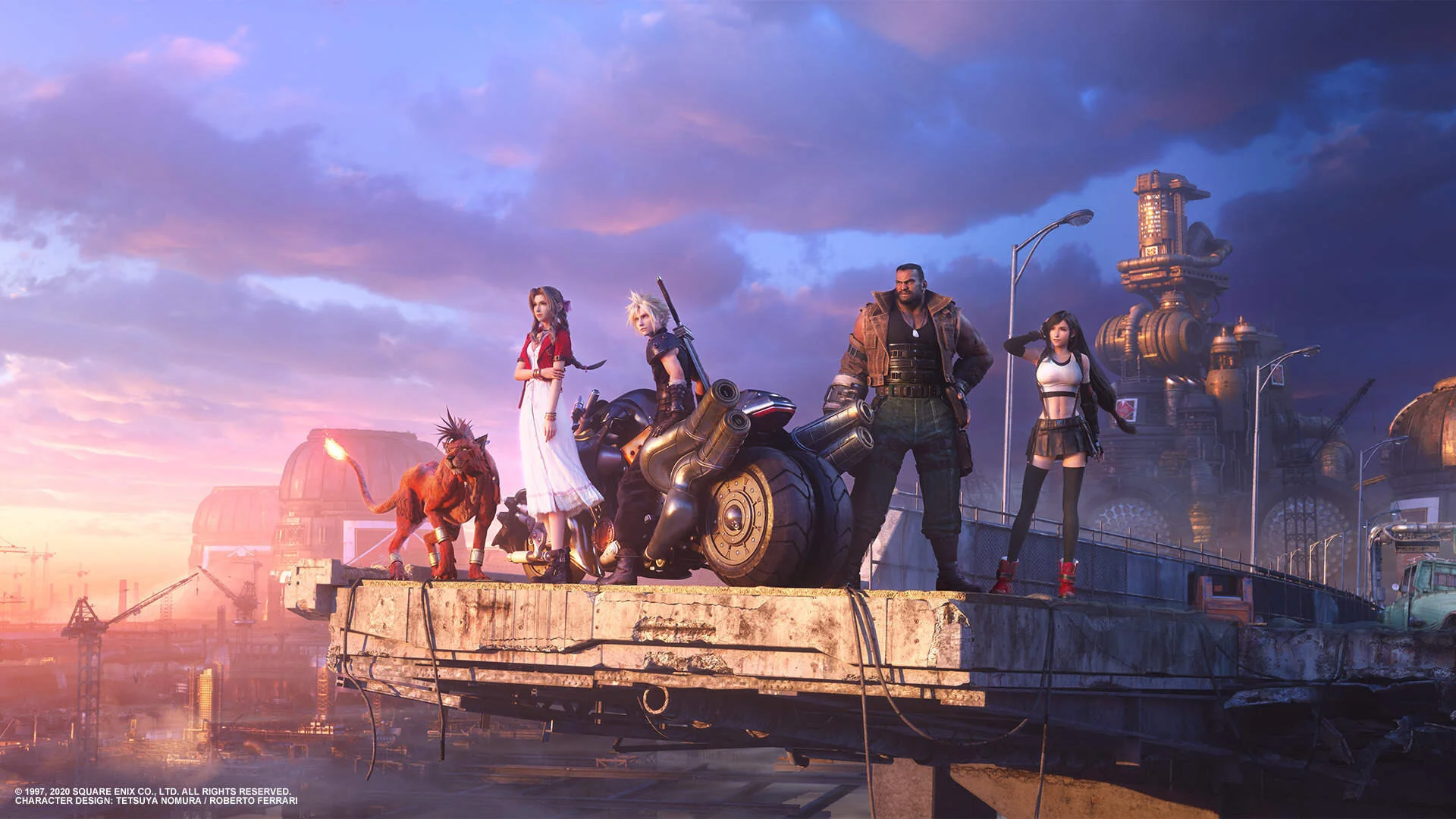Bob Trevino Likes It carries with it an infectious optimism amid its heavy emotion, and that’s what makes the film so satisfying, uplifting, and sometimes heartbreaking to watch. Connection is something that dramatically transforms Lily, allowing her to become a better version of herself, and such a thing can and should happen to all of us.
All in Analysis
Metaphor: ReFantazio Review: A Bold, Brilliant Fantasy Among Atlus' Finest
Metaphor: ReFantazio is a special game. It’s a type of game that inspires newfound hope in the future of JRPGs. While the game stumbles a tad with its unimpressive dungeon and quest design, the incredible narrative, worldbuilding, characters, and gameplay opportunities make for an unforgettable RPG experience that any fan of the genre needs to experience.
Sonic X Shadow Generations Review: A Solid Celebration of the Old and Promise of the New
Sonic X Shadow Generations is a remarkable blend of past, present, and future. Sonic Generations reminds us of the legacy of this long-running platformer franchise and the many peaks and valleys its run through over that time. Shadow Generations is an indicator of the progress that Sonic Team has made over the last decade and is a great representation of what polished Sonic gameplay can and should be moving forward.
Size over Substance: How Larger Levels Make Banjo-Tooie an Inferior Sequel
Banjo-Tooie is a cautionary tale about what happens when you try so hard to create something revolutionary and new that you partially forget what made the original experience so magical for a lot of people.
Trust Your Spirit: What Makes Kiki's Delivery Service a Timeless Classic
The theme of trusting your spirit to understand how you want to live your life is an idea that transcends age, gender, nationality, and walk of life. We all have a lot to learn from our spirit, but doing so isn’t an inherently easy thing to do. This is precisely what makes Kiki’s Delivery Service a timeless classic.
"Exhibiting Forgiveness" Review: Exceptional Emotional Examination of Trauma, Hatred, and Forgiving without Forgetting
Exhibiting Forgiveness is an emotional adventure that smartly and gracefully investigates how the broken relationships of the past can inform the new relationships we build in the future. This film excellently reveals information to its audience in a way that humanizes the very real pain experienced and brought about by its characters in honest, profound way.
"Look Back" Review: A Bittersweet Masterpiece about the Shifting Natures of Friendship and Artistry
Look Back is a tender, heartfelt exploration of how much can change in what feels like a short amount of time. So many aspects of our lives shift throughout time. Look Back is an excellent, bittersweet exploration of these shifts and how they inform the person we become.
"A Different Man" Review: A Thoughtful if Flawed Commentary on Individuality
A Different Man is a film ultimately concerned with our relationship with individuality and the comparisons we make with others through highlighting two characters' opposite relationships with their attitude towards the world and their disabilities.
"Strange Darling" Review: A Modern Classic Thriller that Brilliantly Deceives its Audience
Through intelligent framing and using the audiences familiarity with the film’s genre against them, Strange Darling subverts and weaponizes audience expectations, making them just as much of a victim as the many characters who get bested in the film.
Final Fantasy VII Remake Stands as One of the Best Action JRPGs of the Last Decade
Final Fantasy VII Remake turned Final Fantasy VII into a game that I like into something that I am actively looking forward to seeing more of. It’s a special game that gives me a new degree of optimism and hope for the future of Final Fantasy - which is perhaps that greatest thing that Final Fantasy VII Remake could have possibly given me.
NieR Replicant Review: Ambitious Storytelling Excellence Marred by Underwhelming, Frustrating Design
Many people love NieR Replicant because of its ambition, unconventional approach to gameplay and storytelling, and such ambition is admittedly alluring. While it doesn’t shield my eyes from the clear issues that hold the game back from true greatness, I still feel that NieR Replicant is a game that deserves to be experienced, if only to get more people thinking about how games can continue to telling captivating stories only capable through the medium of video games.
Yakuza 3 Review: A Powerful (if Unrefined) Tale of Kindness and Empathy
There’s very much a strong core to Yakuza 3. There’s nothing explicitly bad or unenjoyable at the game - it just feels like a victim of a series that naturally improved its execution of its ideas over time. Later games refining what Yakuza 3 brings to the table isn’t the fault of Yakuza 3, but it does highlight how unpolished and unrefined Yakuza 3 is as a result.
Assessing World and Narrative Size in The Legend of Zelda: Link's Awakening
Link’s Awakening is but one example of how smaller-scale design can nevertheless make a world feel as believable and immersive as it is tightly constructed and uninterested in wasting the player’s time. Through its tight design and consideration for making an experience that provides a consistent feeling of progression and gradually expanding sense of freedom and exploration, Link’s Awakening ended up provides an adventure that I recall very fondly - an assessment that is in large thanks to the title’s size.
Implementing Challenge and Teaching Mechanics in Nioh
Nioh is a reminder that games do indeed still offer challenge to players, and through that challenge, it crafts players into becoming more attentive, more empowered through overcoming hardship, and more confident that they can learn any skill and conquer any challenge if given perseverance, adaptation, and the will to continue learning and mastering what’s available to them.
"The Art of Self-Defense" Review: A Profound Dissection of Masculinity and Cyclical Violence
Through its dark humor and brilliantly realized characters, The Art of Self-Defense manages to say a lot about violence and masculinity without every coming across as full of itself or preachy. Self-Defense is a film that very much understands what it is and the kind of story it’s trying to tell, and doesn’t attempt to be anything that it isn’t. What results is a film that is tightly focused, funny, and intelligent.
Celeste and the Symbiotic Relationship of Difficulty and Narrative
Everyone who plays Celeste will learn about how to learn and and get through hardship, which, in so doing, teaches its audience about mental health and illness, a topic that many pieces of media struggle to effectively talk about, and how it can be coped with. It is for teaching that lesson to its players that Celeste’s management of its difficulty and narrative serves can only be considered as masterful.
Octopath Traveler: The Effect of a Frustrating Shortage of Character Interaction
The separation of characters' stories and the frustrating limits of the characters' interactions with one another create a narrative experience that feels very fragmented. This fragmentation causes Octopath to feel like it hosts a party of characters that happen to be going on quests that take them in the same direction, rather than a party of characters that feel like they're going on a quest together.
Encountering Knowledge and Going Beyond Perception in "2001: A Space Odyssey"
This piece on 2001 is specifically focused on my interpretation of the meaning of the three monoliths that we see throughout the film, as well as my interpretations of the Star Gate sequence and Star Child imagery towards the end of 2001.

















